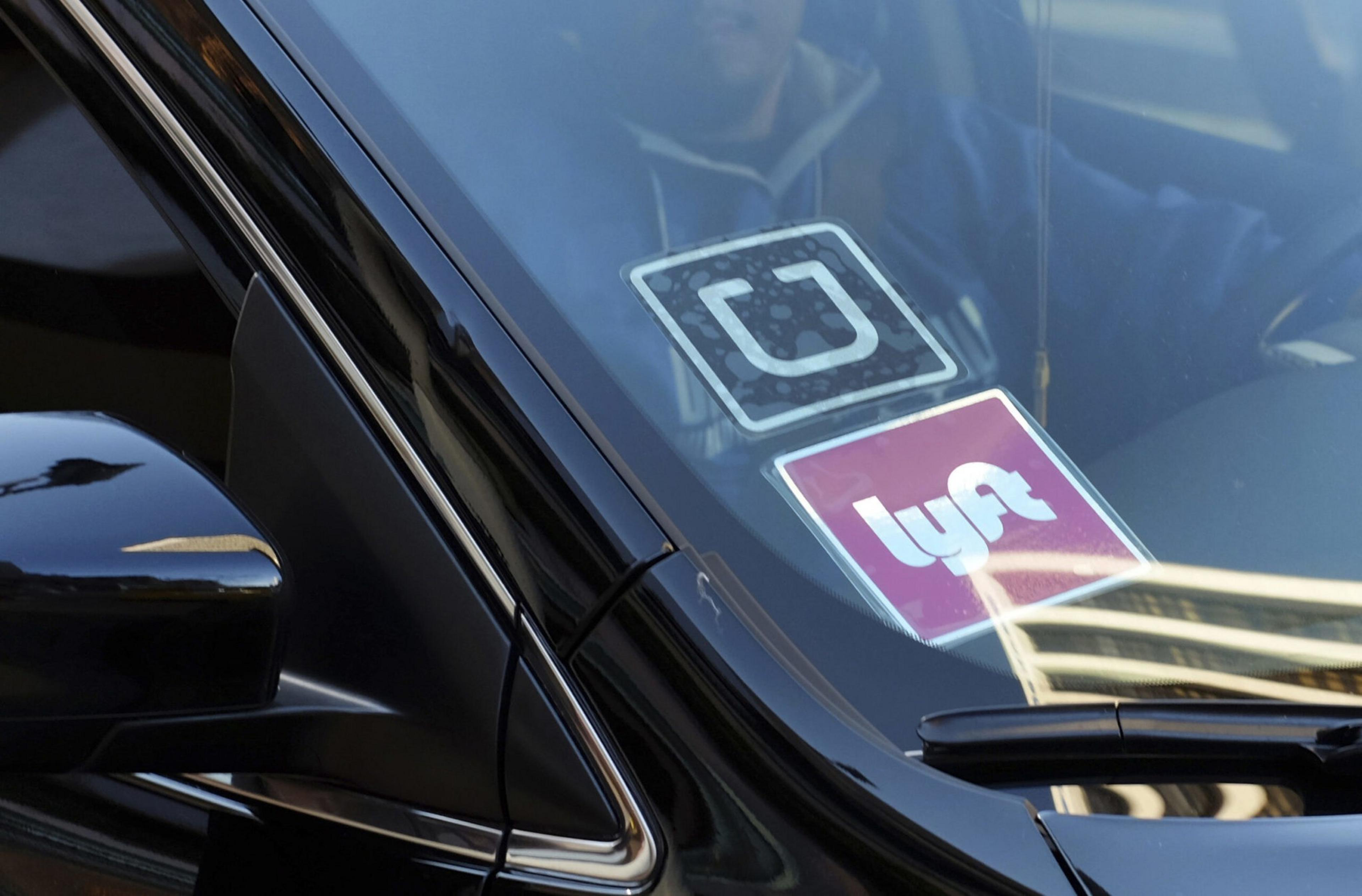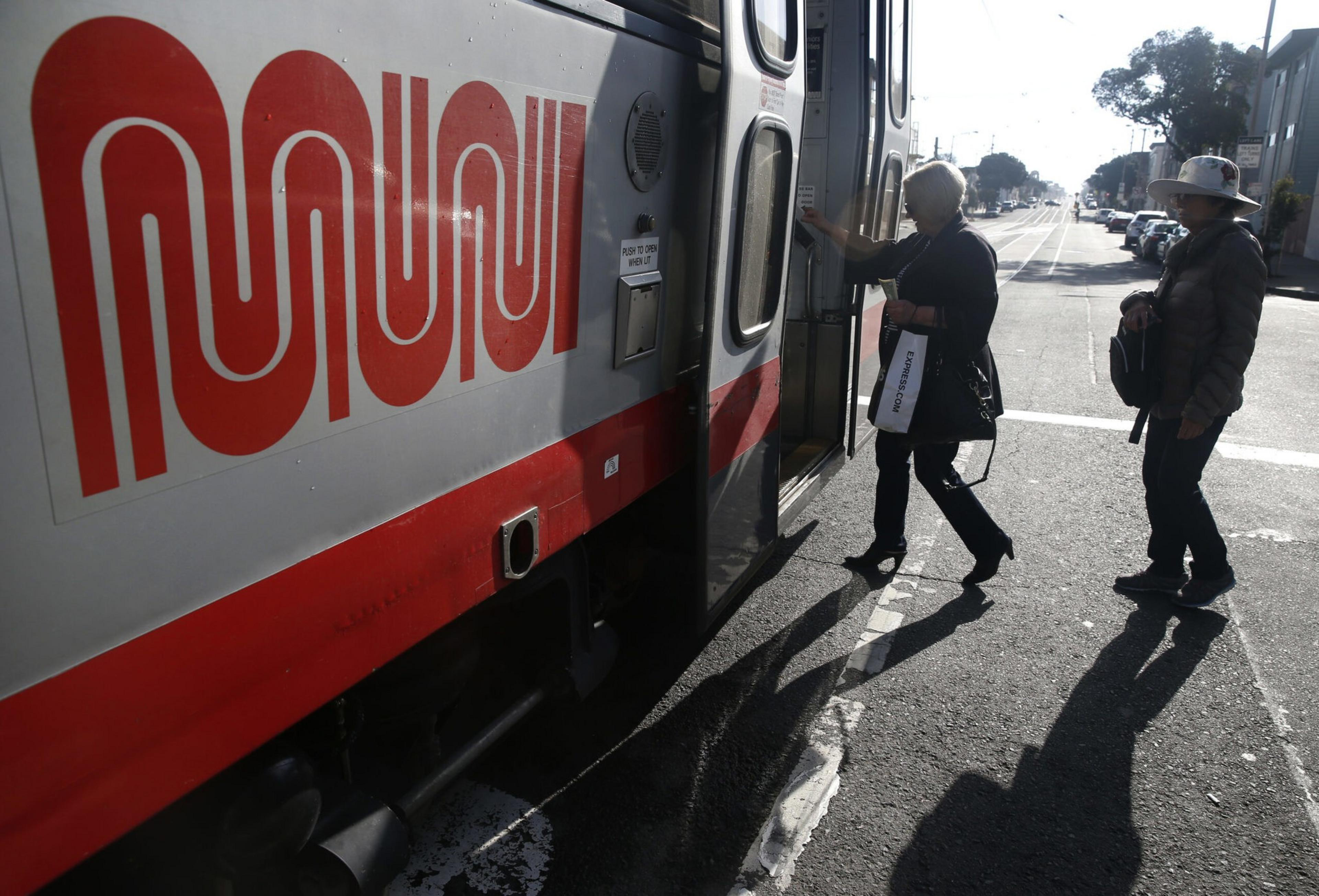San Francisco’s Muni transit system is badly strapped for cash. Ridership has yet to approach pre-pandemic levels, and the agency is struggling with a $12.7 million shortfall in the next two years, falling off a cliff to a nearly $228 million deficit in the 2027 fiscal year.
While the city is still grappling with how to fill the gap, some San Francisco residents are putting forward their own plan—a ballot measure to tax ride-hailing companies, whose growth they say competes with transit in the city, and funnel the proceeds to Muni.
While ballot measures tend to be introduced and backed by political groups and supported by politicians, this initiative appears to be a true grassroots effort, without institutional backing or coordination with the San Francisco Municipal Transportation Agency, the Office of the Mayor or the Board of Supervisors.
Chris Arvin, one of the measure’s organizers who works a day job as a software designer, said they donated $15,000 from their own savings to help launch the effort.
“That is a pretty significant amount of money for me,” said Arvin, who is also vice chair of the SFMTA Citizens’ Advisory Council. “But at the same time, the amount of money I’ve saved from Muni because I don’t have to have a car, I figure I can give some back and try to get Muni some funding.”
Arvin and fellow advocates hope the new tax would put up to $30 million each year into Muni’s coffers. Companies that offer rides in San Francisco, including Uber, Lyft and Waymo, would be taxed between 1% and 4.5% on all revenue they earn in the city.
“We have been hearing for a long time about the sort of doom and gloom of the transit funding situation and the fiscal cliff that Muni is going to hit,” Arvin said. “At some point, you get tired of hearing about the doom and gloom, and you want to do something about it yourself.”
If passed, the tax (opens in new tab) would be levied on top of San Francisco’s existing ride-hailing charge, which is 1.5% for shared rides and 3.25% for solo rides. Uber and Lyft both supported the current tax when it went before voters in 2019. They supported the measure hoping to dodge more onerous proposals floated by city leaders, who criticized the companies for increasing street congestion (opens in new tab). Both companies now pass the fee directly to consumers, as any customer in the city can see on their receipt.

“While we have not reviewed the proposed measure, Uber already supported a dedicated per-ride fee that has provided millions in funding for public transit and transportation infrastructure in San Francisco in 2019,” an Uber spokesperson said. Waymo and Lyft did not reply to a request for comment.
The existing tax brought about $17 million into city coffers in the most recent fiscal year, with much of the money going toward street safety projects, according to San Francisco County Transportation Authority spokesperson Stephen Chun.
Arvin and their allies hope to place their proposal, which they’re dubbing the ComMUNIty Transit Act, on the November 2024 ballot. They’ll need to gather about 10,000 signatures in support of the initiative by July 8 to do so.
Donations from Arvin, along with those from fellow campaign leaders Kat Siegal, Lian Chang and others involved in the effort, have brought their war chest up to $100,000 in pledged contributions, according to Arvin. That money will fund paid signature-gathering to supplement their volunteer work, they said.
The campaign’s fundraising goal is $200,000. But spending on San Francisco ballot measures has often dwarfed that amount in recent years. For example, opponents of the police staffing measure last March doled out nearly $1.4 million.
Meanwhile, ride-hailing companies have marshaled major resources in past political campaigns. Uber and Lyft spent $640,000 combined supporting the ride-hail tax in 2019. Then in 2020, they, along with other ride-hail companies, dropped over $200 million on a California measure (opens in new tab) that kept drivers from becoming employees eligible for benefits.
Board of Supervisors President Aaron Peskin, who authored the 2019 tax on ride-hailing companies, raised concerns that the independent activists’ effort may overlap awkwardly with proposals that are already in process.
“Given the city’s ongoing work to craft a sensible business tax reform measure, I wish they would have worked with the Board of Supervisors and the Mayor’s office so our efforts don’t conflict,” Peskin wrote in a text to The Standard.

The SFMTA, while not officially involved with the measure, is taking a sunnier view of the initiative.
“We did not sponsor the measure but appreciate efforts to increase revenue for transportation in San Francisco,” SFMTA spokesperson Michael Roccaforte said. “If this measure were to pass, it would be used to sustain the transit services we are providing today, but by no means closes our deficit completely.”
State lawmakers have already proposed a much larger 2026 ballot measure that could inject as much as $2 billion a year into Bay Area transit. But in the meantime, the transportation agency has been left grappling with a $40 million hole in its annual capital budget stemming from the razor-thin electoral loss of a 2022 Muni bond measure, according to the agency’s director, Jeffrey Tumlin.
That’s why Arvin, who worries that the 2026 measure may come too late for the city’s struggling system, wanted to put this measure forward now.
“Just because we’re solving part of the problem doesn’t mean that this is not worthwhile,” Arvin said, adding that they think that city residents will throw their support behind the new tax. “I think if we can get on the ballot, we can win.”
